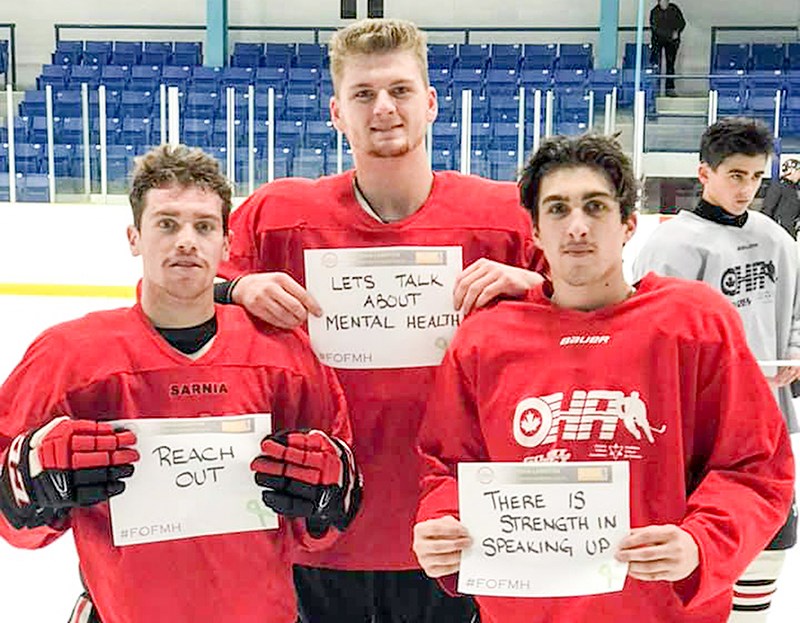Tara Jeffrey
A former Sarnia Sting player’s effort to thrust bullying into the spotlight has sparked a dialogue about abuse, toxic masculinity and ways survivors can come forward.
“There is definitely conversations happening,” said Brian White, a city councillor and member the Male Ally Coalition, a new volunteer branch of the Sexual Assault Survivors’ Centre.
White contacted Daniel Carcillo after the former Sting forward made national headlines describing the physical and emotional abuse he and other rookies experienced during the 2002-03 season in Sarnia.
“He indicated that there are a lot of people coming forward that have been affected by similar experiences, not just in hockey and not just in that time span,” said White, who has spoken to Carcillo about possibly hosting a forum-type event in Sarnia in the new year.
“I’ve had conversations with a few organizations and I know Daniel is speaking to others as well about the opportunity to have a public discussion in a safe way.”
Carcillo said rookies were regularly beaten with a sawed-off goalie stick and at one point forced into the bathroom stall of a charter bus naked while senior players spat at them through the vents.
Within days, three other former Sting players confirmed Carcillo’s allegations and shared their own detailed stories of abuse, and how it impacted their lives and careers.
“I think everyone has been shocked into talking about this. It’s really coming out of the closet more and more. It’s great that Daniel (Carcillo) has done this,” said fellow ally Allan McKeown.
“We do live still in a patriarchal society where boys are taught that ‘might is right’ and that violence is justified sometimes, which is a sad message.”
McKeown added young men who bully often go on to become abusive in relationships.
Members of the Male Ally Coalition plan to speak in the new year about issues like sexual abuse, toxic masculinity, and in particular, bullying and hazing on sports teams, he said.
“The Sarnia Saints Rugby Club has indicated they would be open to this type of training in the spring, when they begin their season, because they have both male and female teams and recognize the importance of this,” McKeown said.
Meanwhile, the Sarnia Sting organization will once again participate in the ‘Onside’ program, first launched in 2017 through the Ontario Coalition of Rape Crisis Centres and facilitated by the local Sexual Assault Survivor’s Centre.
“It provides the players with tools, both on and off the ice, to really unpack that narrative that’s out there about manhood — and look at counter narratives for men,” said executive director Michelle Batty. “They’re being more proactive now. It looks like from what I’m hearing in the media that there were things that were definitely ignored in the past.
St. Clair Child & Youth is continuing its successful ‘Face Off For Mental Health’ campaign, making hockey arenas a safe space for players and bench staff to talk about mental health while raising funds and awareness for the agency.
One participating organization, the Sarnia Legionnaires, has introduced Program of Excellence, which offers players guidance on everything from health and wellness to civic responsibility.
Another program coming to Sarnia is called Man Made. Currently offered at Western University, it involves weekly groups for men aged 18 to 25, with conversation and peer modelling around healthy masculinity, Batty said.
“And clearly understanding consent and coercion — which all ties into hazing and bullying because kids in sports teams want to belong, they want to be accepted,” she said.
“The rights of initiation get incorporated into the culture, but in the situations that we are hearing about – it’s has gone way beyond that.”
